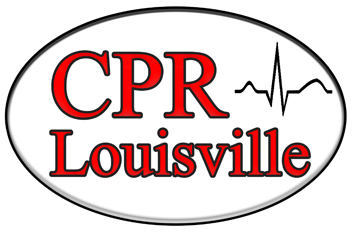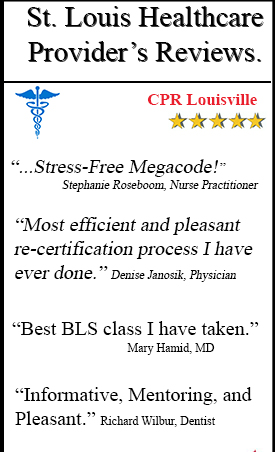In the dynamic field of healthcare, the ability to respond effectively in emergencies is paramount. Basic Life Support (BLS) training plays a vital role in equipping healthcare professionals with the necessary skills and knowledge to save lives. This comprehensive article explores the five key benefits of BLS training for healthcare professionals, highlighting the significance of this training and its profound impact on their careers.
BLS training encompasses a set of standardized techniques and protocols designed to provide immediate assistance to individuals experiencing life-threatening emergencies. It includes critical procedures such as cardiopulmonary resuscitation (CPR), airway management, and the use of automated external defibrillators (AEDs). BLS training is crucial for healthcare professionals, including nurses, doctors, paramedics, and other frontline responders, enabling them to deliver timely and effective interventions in emergency scenarios.
Key Benefit 1: Enhanced Life-Saving Skills
During emergencies, time is of the essence, and healthcare professionals trained in BLS possess the necessary skills to intervene immediately. BLS training emphasizes the importance of early recognition and intervention in cardiac arrest, respiratory distress, and other life-threatening conditions. With the knowledge gained from BLS training, healthcare professionals can confidently perform life-saving techniques, improving the chances of survival for patients in critical situations.
BLS training not only enhances theoretical knowledge but also emphasizes practical skills development. Through hands-on training sessions, healthcare professionals gain proficiency in critical techniques such as CPR, which involves chest compressions and rescue breaths. Additionally, BLS training covers the use of AEDs, enabling professionals to effectively operate these devices during cardiac emergencies. By honing these skills, healthcare professionals become competent in providing immediate and effective care to patients in need.
Key Benefit 2: Increased Confidence and Preparedness
Confidence is crucial when faced with high-pressure situations. BLS training instills confidence in healthcare professionals by providing them with the knowledge and practical skills required to handle emergencies. By mastering life-saving techniques and emergency protocols, professionals gain the confidence necessary to make swift decisions and take appropriate actions during critical moments. This increased confidence positively impacts their ability to provide optimal patient care.
Being prepared is essential in emergency situations, as it allows healthcare professionals to respond effectively and efficiently. BLS training emphasizes the significance of preparedness, including the importance of early recognition of emergencies, proper assessment of patients, and prompt initiation of appropriate interventions. By being prepared, healthcare professionals can minimize potential risks and maximize the chances of positive patient outcomes.
Key Benefit 3: Improved Teamwork and Communication
In emergency care, effective communication is vital for seamless coordination and optimal patient outcomes. BLS training highlights the importance of clear and concise communication within healthcare teams. Professionals learn how to relay crucial information, provide updates, and delegate tasks efficiently. By improving communication skills, BLS-trained professionals can create a collaborative environment that enhances patient care.
BLS training incorporates scenarios that require effective communication among healthcare professionals. Participants practice providing concise reports, delegating tasks, and requesting assistance during simulated emergencies. These exercises help improve communication skills, ensuring that critical information is conveyed accurately and promptly. Enhanced communication leads to better coordination and more efficient delivery of care.
During life-threatening situations, teamwork is crucial for providing optimal care and improving patient outcomes. BLS training emphasizes the importance of coordinated teamwork among healthcare professionals. Participants learn how to work collaboratively, delegate responsibilities, and synchronize their efforts to ensure seamless patient care. By enhancing teamwork skills, BLS training fosters an environment where professionals can effectively support and complement each other’s actions, ultimately saving more lives.
Key Benefit 4: Compliance with Regulatory Requirements
Various regulatory bodies mandate BLS certification for healthcare professionals be obtained through specific organizations. The most common organization regulatory bodies rely on for training is the American Heart Association (AHA). BLS certification is often a prerequisite for employment in healthcare settings, as it demonstrates an individual’s competence in providing essential life support.
Non-compliance with BLS training requirements can have serious consequences for healthcare professionals. Without valid BLS certification, professionals may face limitations in their employment opportunities or even potential disciplinary actions from regulatory bodies. It is vital for healthcare professionals to understand and meet the BLS training requirements set forth by the relevant regulatory authorities.
BLS training serves as a means for healthcare professionals to meet regulatory standards and maintain compliance. By completing BLS training programs and obtaining certification, professionals demonstrate their commitment to patient safety and quality care. BLS training ensures that professionals possess the necessary skills and knowledge required by regulatory bodies, allowing them to fulfill their obligations and responsibilities within the healthcare industry.
Key Benefit 5: Career Advancement Opportunities
The demand for healthcare professionals with BLS certification continues to rise. Employers recognize the importance of having a skilled workforce capable of responding to emergencies and providing life-saving care. Hospitals, clinics, and other healthcare facilities actively seek BLS-certified professionals to ensure the highest standards of patient care and safety.
BLS certification enhances professional credentials and increases the marketability of healthcare professionals. It signifies a commitment to ongoing education and professional development, showcasing dedication to delivering quality care. BLS certification adds value to resumes, making professionals stand out among their peers and increasing their chances of career advancement.
BLS-certified professionals have a wide range of career advancement opportunities across various healthcare settings. They may pursue roles such as emergency department nurses, critical care specialists, paramedics, and instructors in BLS training programs. BLS certification opens doors to specialized fields where immediate life-saving interventions are essential. Furthermore, it can serve as a stepping stone to advanced certifications and specializations within the healthcare industry.
BLS training offers numerous benefits to healthcare professionals, including enhanced life-saving skills, increased confidence and preparedness, improved teamwork and communication, compliance with regulatory requirements, and expanded career advancement opportunities. These benefits empower professionals to provide immediate and effective care during emergencies, contributing to improved patient outcomes and overall healthcare quality.
For healthcare professionals seeking to excel in their careers, BLS training is an invaluable investment. By acquiring BLS certification, professionals can enhance their skills, increase their confidence, meet regulatory requirements, and unlock new career opportunities. Healthcare professionals must prioritize BLS training and recognize its significance in delivering high-quality patient care.
BLS training offers significant benefits to healthcare professionals. It enhances life-saving skills, boosts confidence and preparedness, improves teamwork and communication, ensures compliance with regulatory requirements, and opens doors to career advancement opportunities. Healthcare professionals should prioritize BLS training as part of their commitment to providing exceptional patient care.
Looking for professional CPR training in Louisville? Look no further! Join our BLS class in Louisville and gain the life-saving skills you need. Enroll now and be prepared to respond confidently in emergencies. Book your CPR class in Louisville today and become a certified lifesaver in no time





